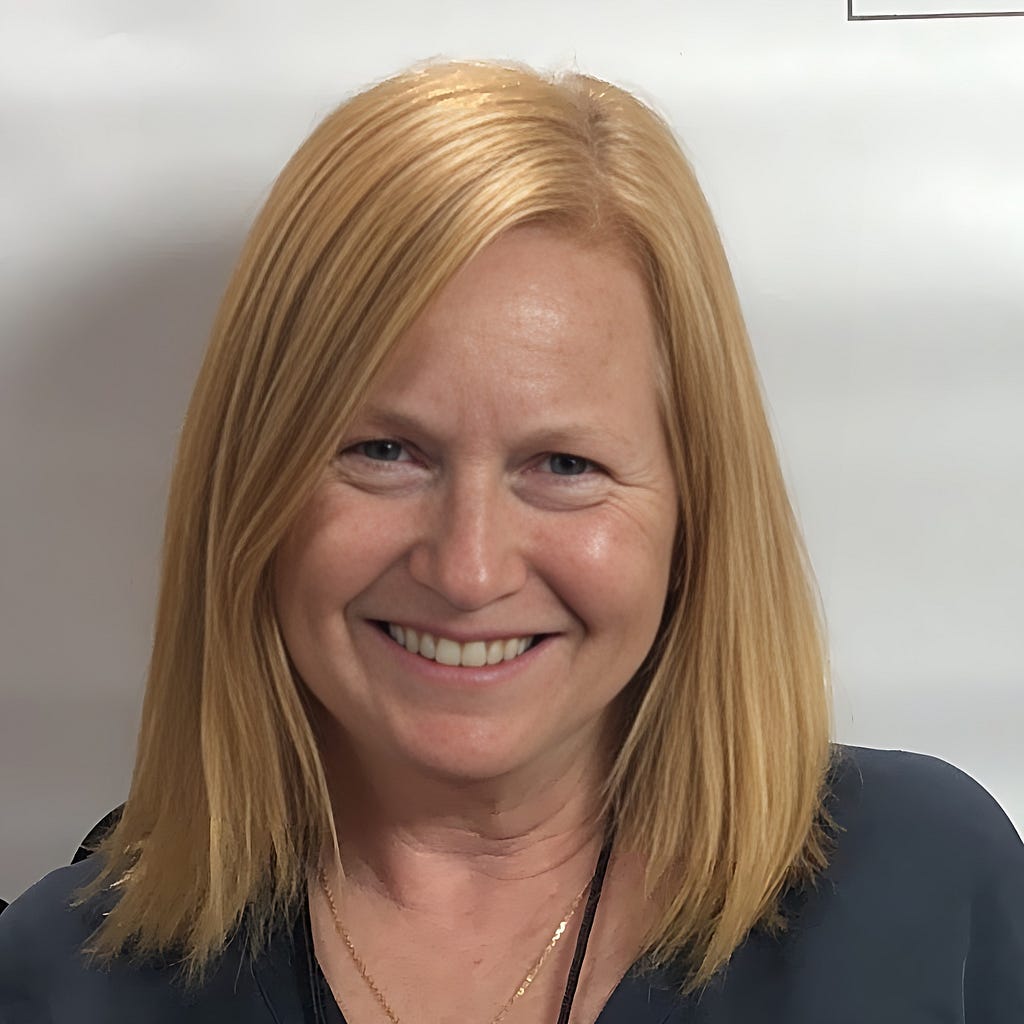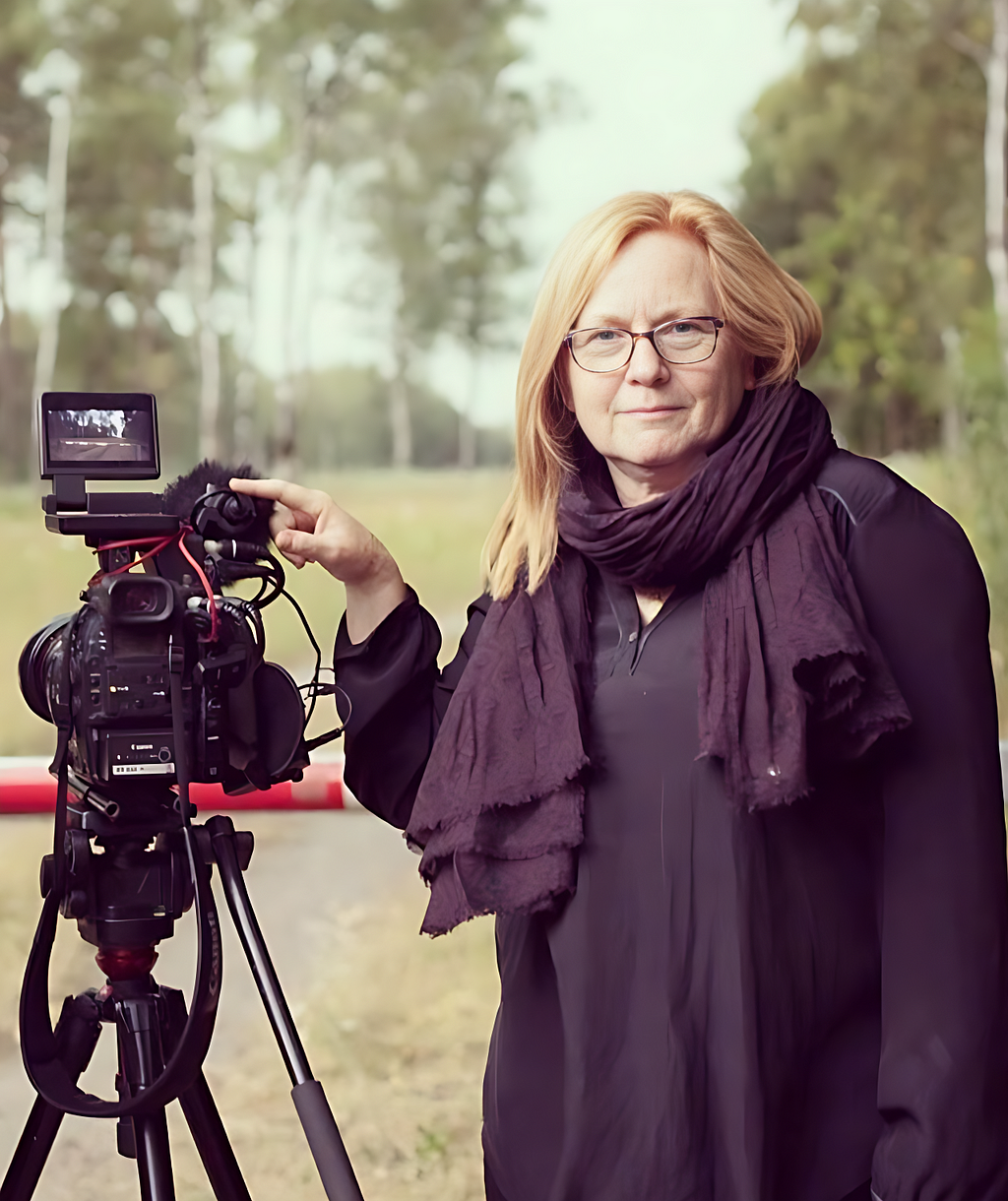Filmmakers Making A Social Impact: Why & How Filmmaker Jane Wells of 3 Generations Is Helping To Change Our World

No one is voiceless, and no one is powerless. Make small goals or contributions. Acknowledge them. If you achieve one goal, make a new one. Flexibility in activism is essential: the world changes, and we have to adjust to those changes.
As a part of our series about “Filmmakers Making A Social Impact” I had the pleasure of interviewing Jane Wells.
Jane Wells, an Emmy-Award nominated filmmaker and activist, is the director and producer of HERE LIVED. Over fifteen years, Wells has produced groundbreaking documentaries chronicling a diverse range of social issues. hMost recently, HERE LIVED focuses on the families impacted by the Nazis during World War II and the generational trauma that atrocity precipitates.
Thank you so much for doing this interview with us! Before we dive in, our readers would love to get to know you a bit. Can you share your “backstory” that brought you to this career?
Over the past fifteen years, I’ve worked as a documentary filmmaker through my production company 3 Generations chronicling a diverse range of social issues, including sex trafficking in my film “TRICKED”; the genocide in Darfur in “The Devil Came on Horseback”; and most recently, the lasting trauma of the Nazi reign, the families of descendants healing their generational trauma and the Stolpersteine project, which is the world’s largest decentralized memorial, in HERE LIVED.
I like to think of my journey to becoming a documentarian as inevitable: my parents met on the set of the Alfred Hitchcock film “I Confess”. My father had worked in the movies since he was a child (as a ticket taker at a picture palace his father accidentally came to own). He had also filmed the liberation of the Nazi concentration camps at the close of World War II, so social justice storytelling was in my DNA. I took a hiatus for a few years when my 4 children were babies but returned to film the genocide in Darfur in 2005.
It has been said that our mistakes can be our greatest teachers. Can you share a story about the funniest mistake you made when you were first starting? Can you tell us what lesson you learned from that?
When I was making that first film “The Devil Came on Horseback” about the genocide in Darfur, I was introduced to Bono at an after-party. I was described to him as a filmmaker who had recently been to Sudan/West Darfur. He was friendly and urged me to get in touch with a certain person at a certain organization who he was sure would be interested and helpful with the film. He repeated the name of said person and made me repeat it back, which I did, and we parted. I was thrilled, thinking, “Wow, I just talked to Bono about Darfur and our film, he was really nice, and better yet, so helpful!” When I woke up the next morning, my mind was blank. I had forgotten who the person was, where they worked and what I was supposed to do. To this day I still have no idea. Lesson learned — keep a notebook handy and always write things down.
Who are some of the most interesting people you have interacted with? What was that like? Do you have any stories?
I guess I would say it has been the women whose lives, on the face of it, appear so different from mine. I will never forget when I was researching a story about child soldiers in Northern Uganda, meeting a young mother cooking a meal over a wood fire in her hut with a baby strapped to her back. As she talked and told her story, she kept on preparing the food. Watching her, I realized that by gently maneuvering bits of wood, she was lowering the flame on the pot, exactly as I do at home making pasta for my kids. Her reflexive cooking skills were identical to mine. I immediately understood a common bond: a mom getting food ready for her kids. Another unforgettable experience was filming a sex worker in Chicago at about 3:00 a.m. one hot summer night. She was 100% under pimp control, and indeed, her pimp was at the interview. She explained how he treated her well, brought her food when she was finished working, etc. At the end I asked her, “What’s your secret dream?” She replied it was to see a palm tree in Florida. When the interview was over, I took her pimp aside and asked him to please take her there one day soon. I often think of her and hope she made it. (The average life expectancy of a street sex worker is 7 years, this happened about 11 years ago.)
Which people in history inspire you the most? Why?
I’ve been thinking a lot about the women behind the men in filmmaking, two in particular: Alma Reville, who was the wife of Alfred Hitchcock, and Joan Harrison, who began her career as his secretary. Alma had a very successful career of her own before they married, but in those days married women could no longer be officially employed. She was his most significant collaborator over the decades. Who knows what his career might have been without her? It wasn’t until I was an adult, and she was near the end of her life that I was aware she had had a career and had been his work partner. The same is true of Joan Harrison, whom I only knew by her married name Joan Ambler. Not only were they not properly heralded in their lifetimes, but their contributions were overshadowed by the praise and fame of their spouses.
Let’s now shift to the main focus of our interview, how are you using your success to bring goodness to the world? Can you share with us the meaningful or exciting social impact causes you are working on right now? ‘
I’m not a huge fan of the concept of “goodness”: Good versus evil is so rooted in patriarchal and religious judgment. I believe in the idea of “the commonweal” and the mutual connectivity of all of us who live on this planet. This is the backbone of all we do at 3 Generations: social justice without environmental justice without reproductive justice is meaningless and won’t work. Genocide has always been linked to (short-sighted) economic greed or environmental catastrophes. Sexual violence comes with genocide. Crimes against individuals become crimes against groups which become crimes against others and damage the planet. So, while we make films and videos that fit into categories, they all have one common goal: to make the world a saner, kinder, more just place.
“HERE LIVED”, our current feature documentary is on the face of it a film about the six million plus people who were murdered by the Nazis (many Jews), but it is not a Holocaust film per se. It is about the power of art to heal and create community. “A Different American Dream” was about fracking but also about the respect for the environment that Native Americans have carried for generations. “TRICKED” was about sex trafficking, but it was also about vulnerability and power dynamics in our culture.
Many of us have ideas, dreams, and passions, but never manifest it. But you did. Was there an “Aha Moment” that made you decide that you were actually going to step up and take action for this cause? What was that final trigger?
Absolutely. When I realized that I had “missed” the Rwandan genocide because I was too busy grieving for my parents and birthing babies, I knew I couldn’t sit back and not do something about the genocide in Darfur (this was 2005). Once I got myself into that war zone and bore witness to the first genocide of the 21st century, there was no going back.
Can you tell us a story about a particular individual who was impacted or helped by your cause?
Here’s the thing: I believe all the issues we work on are interconnected: racism, sexual violence, ecocide. My greatest satisfactions come from when someone who watched a film about sex trafficking suddenly comes to realize that genocide in Africa matters to them in say, Colorado. Or when an individual who is deeply committed to Holocaust issues understands their shared history with Native Americans. I guess creating that “Aha” moment for others is what has most impacted my work.
Are there three things that individuals, society or the government can do to support you in this effort?
Yes: open your mind and heart to people who don’t look like you. Learn about other people’s history, do your own research and admit you might have been wrong.

What are your “5 things I wish someone told me when I first started” and why? Please share a story or example for each.
- Good audio: in documentary filmmaking, people tend to think about image before sound. Rookie mistake.
- Trust yourself and your instincts. It takes a village to make a film, but you cannot make a film by committee. (Believe me, I have tried).
- Own up to your mistakes this is way too rare in our world, we should all be free to share them.
- Create your own definition of success, let it be realistic and then be proud of what you have achieved.
- Honor your lane, it’s yours. See its beauty and value. And stick to it.
If you could tell other young people one thing about why they should consider making a positive impact on our environment or society, like you, what would you tell them?
No one is voiceless, and no one is powerless. Make small goals or contributions. Acknowledge them. If you achieve one goal, make a new one. Flexibility in activism is essential: the world changes, and we have to adjust to those changes.
We are very blessed that many other Social Impact Heroes read this column. Is there a person in the world, or in the US, whom you would like to collaborate with, and why? He or she might see this. 🙂
Great question. Recently, I have longed to collaborate with poet and journalist Clint Smith because he has brilliantly and holistically written about the Stolpersteine project in Europe and recognized (as I did too) its application to this country and our history of genocide and crimes against humanity.
I would love to collaborate with Dr Sharon Blackie. She is an author, psychologist and cosmologist who has identified the powerful, forgotten, obliterated and discredited role of women in indigenous pre-Judeo Christian cultures across the globe. Born and raised in the UK (as I was), I love her elevation of the Celtic Goddess Cailleach: a great-grandmother figure, synonymous with age, wisdom and transformation.
Can you please give us your favorite “Life Lesson Quote”? Can you share how that was relevant to you in your life?
“You get more with honey than vinegar.” I was raised on this by my dad and I always hated it! He got it from his mother, who he called “the queen of clichés. Now that I am older, honey-er and they are long gone, I LOVE it. It happens to be true, and I like the inter-generational aspect of it.
“If you save a life, you save the world.” This is so good; it reminds us to do our bit and be proud of that.
How can our readers follow you online?
At our website, 3generations.org and Instagram @3_generations.
This was great, thank you so much for sharing your story and doing this with us. We wish you continued success!
Filmmakers Making A Social Impact: Why & How Filmmaker Jane Wells of 3 Generations Is Helping To… was originally published in Authority Magazine on Medium, where people are continuing the conversation by highlighting and responding to this story.
